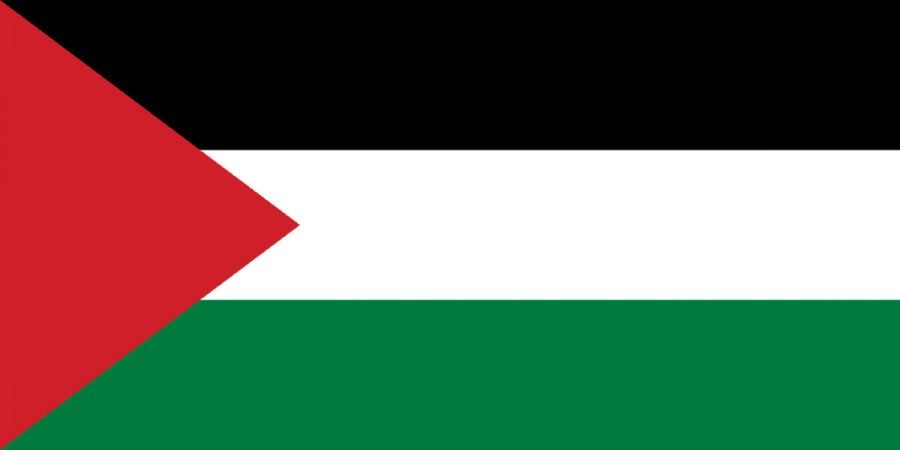United States announces it will cut aid to Palestine
On Jan. 16, the Trump administration announced that it would be cutting U.S. foreign aid to Palestine from $125 million to $60 million. The aid originally supported the United Nations Relief and Works Agency, which provides education, healthcare and other critical humanitarian support to Palestinian refugees.
On Sept. 14, 2015, the U.S. and Israel signed a military assistance deal pledging the U.S. to give $3.8 billion over 10 years, 633 percent more than the amount the U.S. will give to the UNRWA per year.
“We give over $3 billion of military aid a year to Israel, but we can’t give another 65 million to the Palestine,” said Professor of Political Science Ken Gilmore. “And we call it an issue of fairness.”
In 1948, according to Vox, 700,000 Palestinians were expelled from their homes to establish land for the creation of Israel, creating an ongoing multi-generational refugee crisis. The UN estimates that there are currently 5 million Palestinian refugees, defined as people displaced in 1948 and their descendants.
“I couldn’t wander in my own country with freedom, while tourists from other countries could go wherever they wanted in my own country,” said first-year Leena Nahhas, who grew up in Palestine. “And not being able to know your own city, yet living in your country is such an experience, because I am a refugee, an immigrant in my own country. …You still felt unprotected because at any time, soldiers could just walk in and kill you … just because they felt like you were a threat, even if you weren’t doing anything.”
Currently, the Palestinian Liberation Organization is the representative body for Palestinian people. It conducts peace negotiations with Israel and pushes for the creation of a sovereign Palestinian State.
According to Vox, the 1993 Oslo Accords outlined an ultimate goal to be the establishment of a Palestinian state in Gaza and the West Bank in exchange for an end to Palestinian attacks on Israeli targets. This plan has fallen out of favor with Benjamin Netanyahu’s right-wing government, which is unwilling to make any concessions to Palestinians.
“The question here should be, ‘Is Israel agreeing on this solution?’ Because obviously, from all that Israel is doing, it does not want anything but killing Palestinians and kicking them out of the land,” said Nahhas. “We do want our own state, but that doesn’t come back to us unfortunately, because we’re not the ones who have the power.”
Diplomatic relations with Palestine have further deteriorated since the Trump administration’s decision to recognize all of Jerusalem as the capital of Israel. Some have viewed Trump’s decision to cut aid from Palestine as an attempt to blackmail Palestine authorities into rejoining peace negotiations.
“If the U.S. completely cuts the aid for Palestine, it puts the U.S. in a very disadvantaged position,” said Professor of Political Science George Guo. “The U.S. would no longer have as much influence in the Middle East and it would perpetuate anti-American sentiment.”
Cutting aid is a move with potentially dangerous consequences for some of the most vulnerable Palestinian refugees. According to CNN, over 5 million registered Palestinian refugees across the West Bank, Jordan, Syria and Lebanon benefit from UNRWA’s services. The program provides education for 500,000 children, and UNRWA doctors see more than 9 million patients every year. In Gaza, where the poverty rate is 38 percent, 2 million people rely on the UNRWA’s services.
“The United States has lost all pretense of being an honest broker in Middle East peace,” said Gilmore. “I mean how many people are going to live in poverty, … greater poverty than they are already? … How many people are going to starve, how much medicine isn’t going to get delivered because of what I see as a shortsighted political move on the part of the Trump administration.”
Israel is considered an apartheid state by many scholars. According to the Rome Statue of the International Criminal Court, “the crime of apartheid means inhuman acts … committed in the context of an institutionalized regime of systematic oppression and domination by one racial group over any other racial group or groups and committed with the intention of maintaining that regime.”
Palestinians are routinely subject to arbitrary police and military searches, continually displaced to make room for more Israeli settlements and are often victims of police brutality. Public services and utilities are often insufficient, or sometimes just cut off altogether, such as when Israel cut off water to the west bank during Ramadan in 2016, or when power was cut off to the Gaza strip in 2017.
“It couldn’t be described as anything but an apartheid state,” said Nahhas. “Israel was made with the support of Britain and the United States, they basically stole the land, claiming it’s a religious right for them, so yeah, it’s an apartheid state.”
Support for Israel is a powerful political force in the United States, particularly receiving attention during the 2016 presidential election.
For many Palestinians, the desire to remain in their own country has meant that resistance is a part of daily life.
“Basically, living in Palestine and insisting on staying in the land is a form of resistance, because it’s our land and the right to return, it’s our right,” said Nahhas. “I had some moments when Israeli soldiers would come knock on the door, I would hear a lot of shootings right next to my house, where they would come take someone because he shot a soldier or stabbed a soldier, and they would come knock on my door and ask some questions and leave.
It was terrifying, but unfortunately, that’s the Palestinians’ reality. Once you get used to it, you’re like ‘ok its nothing.’ It’s like a 24/7 reality.”









